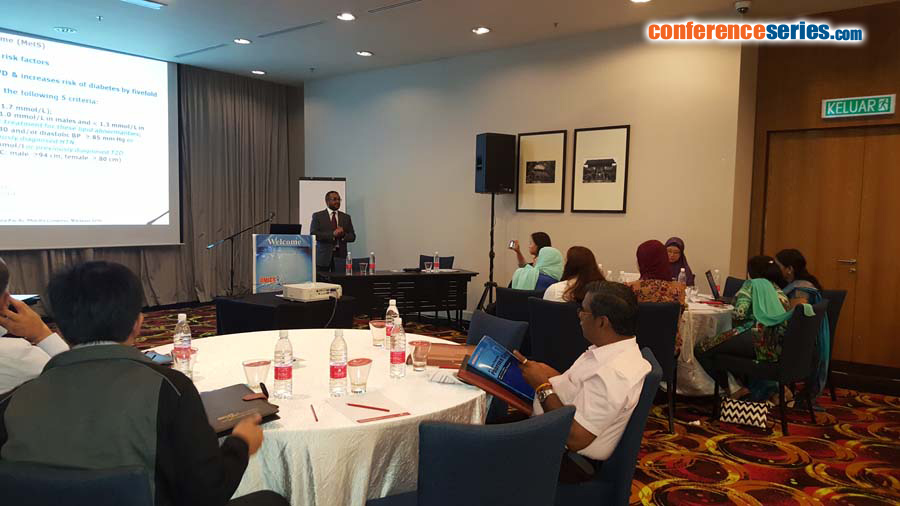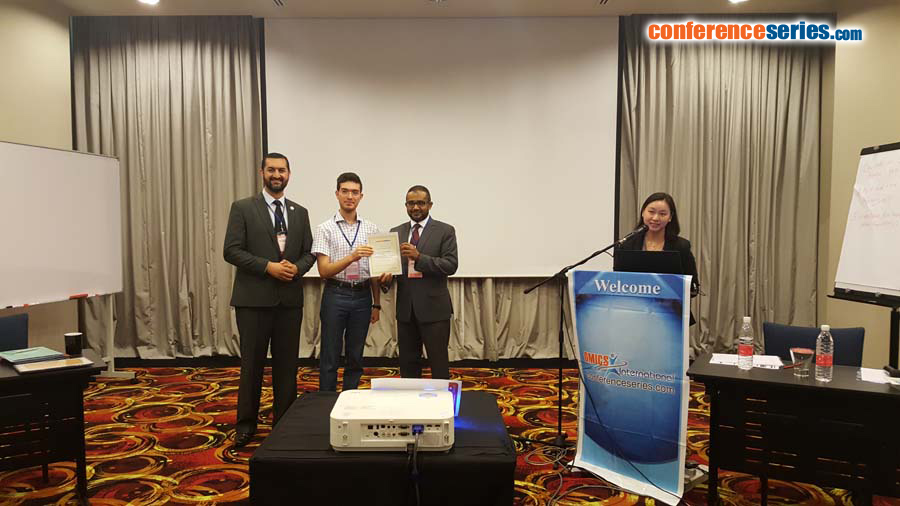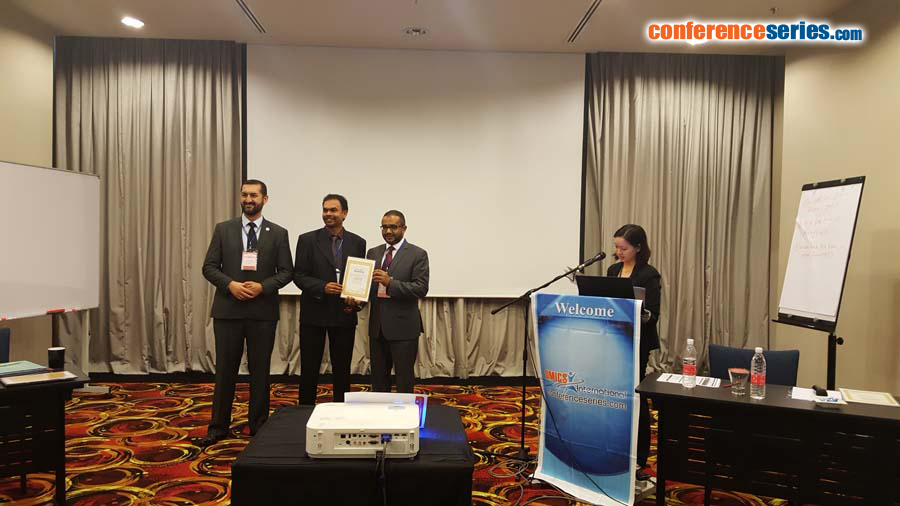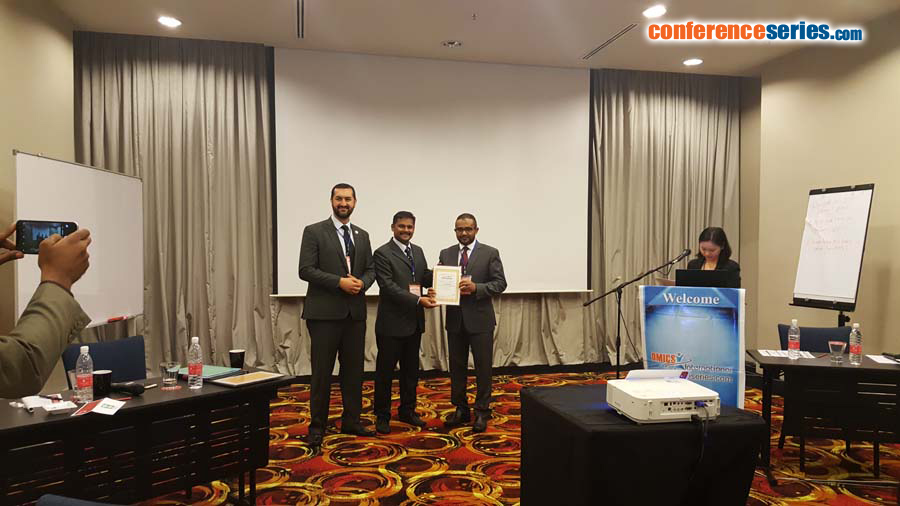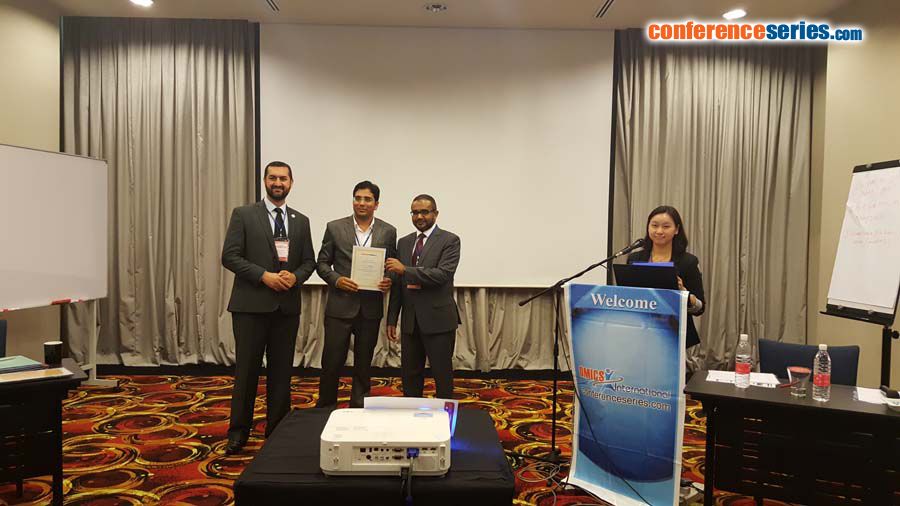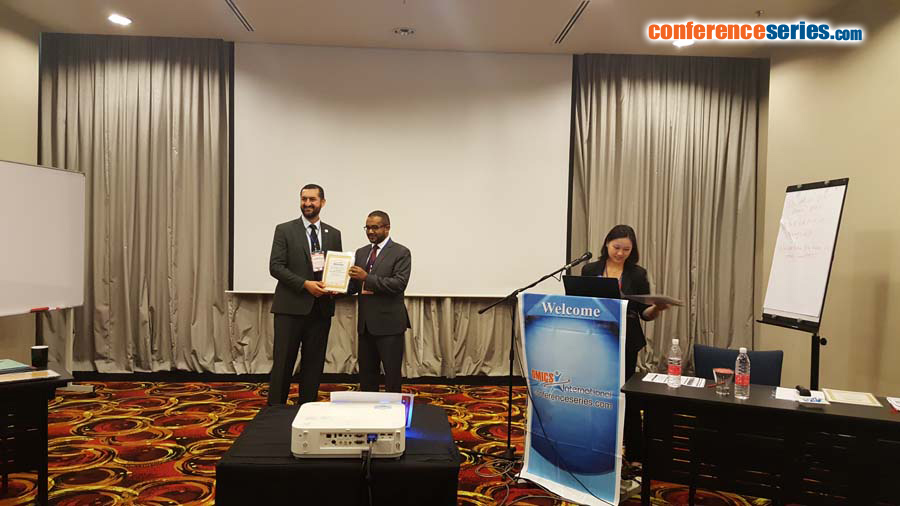
Abdelmoneim Ismail Awad
Kuwait University, Kuwait
Title: 10-year Risk Estimation for Type 2 Diabetes and Coronary Heart Disease in Kuwait: A cross-sectional population-based study
Biography
Biography: Abdelmoneim Ismail Awad
Abstract
Identification of individuals with metabolic syndrome (MetS) and those who are at risk of developing coronary heart disease (CHD) and type 2 diabetes (T2D) is vital to delay or even prevent the development of T2D and modify the CHD risk levels. The present study was designed to determine the prevalence of MetS, and to estimate the 10-year risk for developing T2D and CHD among the general population in Kuwait. A descriptive, cross-sectional survey was undertaken in 1800 individuals without diabetes or a history of cardiovascular disease. The questionnaire was developed using the Finnish Diabetes Risk Score, Framingham Risk Score and the 2009 Joint Statement criteria for diagnosis of MetS as a framework. The response rate was 89.4%. Sixty one percent of responders were either overweight or obese. Twelve percent had BP ≥ 140/90 mm Hg. Twenty eight percent had fasting plasma glucose levels ≥ 5.6 mmol/l, of whom 86.0 % and 14.0% had impaired fasting glucose and screen detected T2D, respectively. MetS was present in 31.8%. Almost 30% were at moderate, high, or very high risk of developing T2D, while 17.6% were at moderate/high risk of developing CHD. Almost 9% were at moderate/high/very high risk of developing both T2D/CHD. T2D risk was higher for females compared to males (p < 0.001); however, the pattern was reversed in terms of the risk of developing CHD or T2D/CHD. The risk of developing T2D, CHD, or T2D/CHD was greater among those aged ≥ 45 years, and those having MetS (p<0.001). The current findings highlight the need for multifaceted interventions for prevention.

